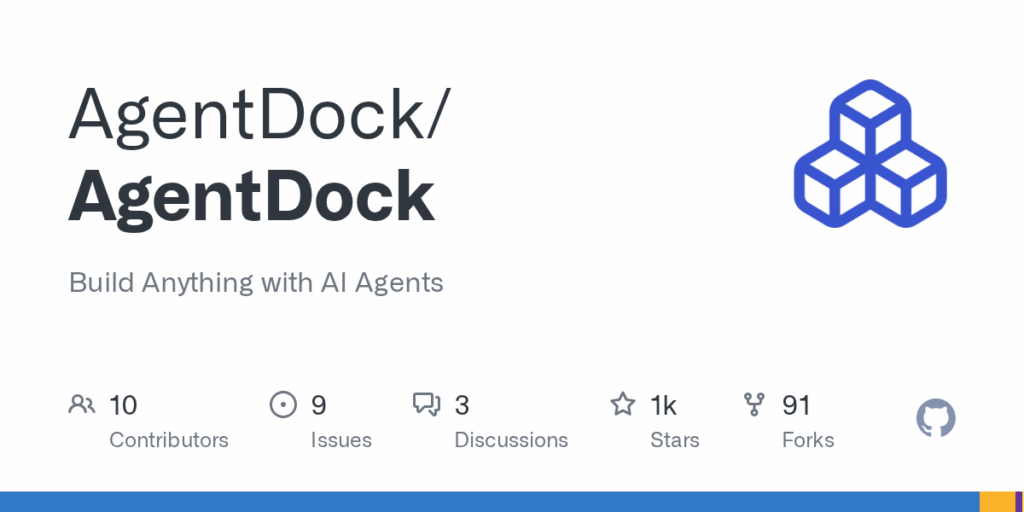AgentDock
Basic Information
AgentDock is an open-source framework for building, configuring, and deploying AI agents with a backend-first, provider-agnostic design. It provides two main deliverables: AgentDock Core, a TypeScript node-based library for implementing agent logic and tools, and an Open Source Client built with Next.js that demonstrates usage and acts as a reference implementation. The repository includes example agents, templates, documentation, and a book-style guide to agent design. The system emphasizes configurable determinism so developers can compose deterministic workflows alongside non-deterministic LLM-driven reasoning. It targets developers who need modular, extensible infrastructure for multi-step tool orchestration, session management, provider integration, and secure API key handling. The codebase is TypeScript-first and requires pnpm and Node.js.








